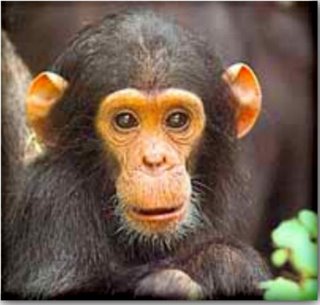Discover Magazine Interviews Jane Goodall
.jpg) The March 2007 issue of Discover Magazine includes an interview with Jane Goodall. The interview was conducted by Virginia Morell. Although Jane has been interviewed more than most people in the world, Virginia still managed to discover new information by asking the right questions. For example:
The March 2007 issue of Discover Magazine includes an interview with Jane Goodall. The interview was conducted by Virginia Morell. Although Jane has been interviewed more than most people in the world, Virginia still managed to discover new information by asking the right questions. For example:
When asked to compare human aggression to animal aggression, Jane responded "I think modern warfare is very different from chimpanzee warfare. Chimpanzee warfare is not unlike gang warfare, but modern warfare is about economics. It isn't about defending territory."
It has now been 47 years since Jane Goodall began her research in Gombe. The interview reveals that Jane began her career in Africa by working as a secretary for the famous anthropologist Lewis Leakey. While working with him, she developed her passion for observing chimpanzees.
Jane is credited with changing our perception of higher primates from that of mindless animals to seeing them as thinking, feeling, very intelligent beings, who in many ways meet the definition of human. Her findings were not anthropomorphic, but rather based on years of carefully documented observations that, in time, were verified by other scientists.
Jane also discusses TACARE, the Lake Tanganyika Catchment Reforestation and Education program, which gives microcredit loans to tribes which live near the chimpanzee habitats. This program provides economic incentives for the local people to preserve the chimp habitats and to reforest areas around these habitats. Jane states that it is much more successful than block grants from large world charities. This is so because it is developed and run through the local tribal cultures, so the people buy into the programs more enthusiastically than when money is "thrown" at them from outside organizations.
I have read quite a bit lately about microcredit loans, and how successful they have been in third world countries. In 2006, Muhammad Yunus, one of the originators of the microcredit loan system, was awarded the Nobel Peace Prize for his work.
Jane also educates children all over the world about the importance of preserving wildlife habitats, so that the next generation of people running our planet will be more sensitive to this issue.
My only criticism of this interview was that it was very brief. Virginia did ask Jane fifteen well crafted questions, and Janes answers were very informative, but, after finishing the interview, I was hungry for more.
However, if you are interested in Jane Goodall's work, and would like to learn more about her, then this interview is well worth reading!
.gif)










.jpg)
2 comments:
Very good Bob.
The person who responded, Lesley Day, is the President of Chimps Incorporated in Bend, Oregon. I feature their organization on my blog. Check them out. I am very impressed with their organization!
Post a Comment